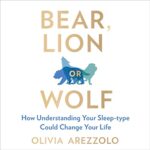How to sync your sleep to your circadian rhythm
With sleeplessness a bigger problem than ever, we need solutions – ones that supersede the basics of bedtime routine and blocking out blue light. While these factors are important, yes, so many of us are already doing the fundamentals, and need to step up their sleep game to see results. And, even if you’re not doing those essential first steps, you can still start your sleep journey here – and then add those elements later. The thing is, it doesn’t really matter which one you do first – so long as you take action to improve your sleep, you’ll see results – and be inspired to do more. So – with your best night’s sleep and more energetic days in mind, let’s share how to sync your sleep to your circadian rhythm, stat.
First… What is circadian rhythm?
The circadian rhythm is your biological 24 hour body clock that governs the timing of your bodily functions, such as hormone production, appetite, energy and sleep. You’ve probably noticed that on most days, you feel hungry at the same time, sleepy at the same time, and energetic at the same time. While this is in part driven by your environment (e.g. if you’ve just eaten or slept), this is also directed by your circadian rhythm, which is the timing master.
Within the processes it orchestrates is the sleep / wake cycle – which leads you to, on most days, feel tired at the same time, sleep at the same time, and wake at the same time. If you’ve heard us speak about this before, you’re right – this topic is linked to your sleep type, aka your chronotype, which is a categorisation system for the circadian rhythm. As you may know, you can be classified as a Lion (someone who likes to sleep and wake earlier than others), a Wolf (someone who likes to sleep and wake later than others), or a Bear (someone who likes to wake / sleep neither early nor late; but needs lots of sleep).
Lastly, important to note that the circadian rhythm doesn’t decide to direct your bodily process just ‘because’ – the circadian rhythm is influenced by the light / dark patterns. And, equally, this is important to appreciate because many of us are out of sync with our circadian rhythms because we have excessive light exposure, particularly in the evening, which leaves our body doing things it would usually do during the day – like being alert and awake.

Why is it important to know what it is?
It’s important to appreciate that everything we do – sleeping, eating, exercising and being productive – has an ideal time. And, if we recognise what that is, and honour it, we naturally feel better – more energetic, more focused, able to sleep deeper and more.
On the other hand, if we ignore the importance of our circadian rhythm, ignore the ideal timings associated with our activities, or don’t know what these ideal times are, we will struggle to do even the simplest of activities. We’ll be mentally exhausted when we try to work, feel alert when we are trying to sleep, and sleepy through the day instead of being energetic and awake. Though this may be hard to imagine, we all know this – it’s the feeling of jetlag.
And, given that the circadian rhythm responds to the light / dark patterns, this makes sense – for most of us, we are used to being alert at 12pm in the afternoon, and because of the circadian rhythm, and it’s usual awareness that it’s bright outside, it produces hormones to ensure we are awake at this hour, like cortisol and serotonin.
And, when we travel across timezones, we may arrive at 12pm at our new destination (where it’s bright), and it’s 3am (and dark) back at home – hence, the body and it’s hormone systems feel completely out of whack, hence why you feel completely out of sorts, unable to achieve the simplest of tasks.
How do you know if you’re not in sync with your CR?
As mentioned, if you’re not in sync with your circadian rhythm, you’ll feel like you have permanent jetlag. Hallmark signs include struggling to switch off in the evening, feeling exhausted in the morning, waking frequently through the night, feeling tired and unable to focus through the day yet wide awake in the evening. And to close, know that if these are your symptoms, it can be addressed – and making simple changes to your routines – timing your sleep better and eating in alignment with your rhythm – you’ll naturally feel better overnight… literally.

How can you tell what your rhythm is?
To understand your circadian rhythm, and the ideal timings for all your activities – from eating to sleeping to being productive, check out my book – Bear, Lion, Wolf.
Written by Olivia Arezzolo, Australia’s Leading Sleep Expert and Keynote Speaker. Olivia is the go-to guru for The Today Show, The Morning Show and Sky News; and has partnered with global brands such as IKEA, Samsung, AIA Insurance and more. Connect with Olivia on instagram – @oliviaarezzolo; or on LinkedIn – she’d love to hear from you.
For the full article grab the June/July 2024 issue of Women’s Fitness Australia from newsagents and convenience locations. Subscribe here.







